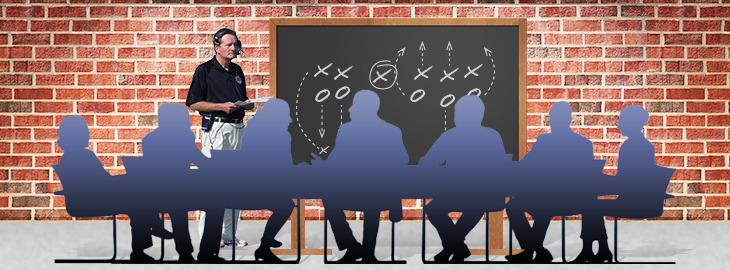
Coach v Mentor? Hard to argue with that…
Posted On January 3, 2016
As a card-carrying member of Generation X who also participated in sports from elementary school on up through high school, I get a very clear picture in my head when someone uses the word “coach.”
There is a whistle, a certain comically ugly style of beltless shorts, a lot of physical exertion and pain, and usually a lot of yelling.
That’s not to say I questioned their methods. All the wind sprints and all the yelling were designed to make me and my teammates better athletes. The fact that most of it failed miserably reflects more on me than on them.
But with that well-defined picture in mind, I found it very interesting to read a recent article at cultureamp.com on what millennials are looking for in the workplace.
There were the now commonly known millennial ideals of greater flexibility, collaboration and a thirst for affecting positive change in the world. But there was also the thought that millennials prefer their bosses to be more of a coach and less of a supervisor.
Drop and give me 20, employee!
Perhaps it’d be more accurate to think of the millennials’ ideal boss as a mentor instead of a coach, and writer Mat Luschek actually uses that word later in his piece. They want someone who will “promote a culture of equality and responsibility,” “bring a more positive aspect to the workplace” and create a closer relationship with them, Luschek notes.
Thought of this way, it’s easy to see why a millennial might prefer this type of boss. Who wouldn’t? As a “counterpoint” at the end of Luschek’s piece, Culture Amp’s CEO, Didier Elzinga, contends that many of these concepts traditionally associated with millennials are really cultural workplace shifts desired by and designed for all employees, not just the younger ones.
There’s a valid point here. Pretty much everyone wants flexibility and a healthy work-life balance. Most of us would love to make a difference of some kind in the world. You’d be hard-pressed to find an employee who’d prefer a dictatorial supervisor over a mentor that is looking for positive ways to help them be more productive and successful.
Perhaps the biggest change in today’s workplace is that millennials seem more willing than their Baby Boomer and Gen-X ancestors to change jobs in order to find these ideals. “No longer are people staying at a job for 40 years doing the same tasks day-in and day-out, holding out for that gold watch at their retirement party,” Luschek notes.
While part of the reason for that may be the all-too-common layoffs in an increasingly volatile workplace, the relative lack of hesitation by many millennials to switch jobs is also a significant factor. That’s why many workplaces are finding it prudent to adjust to their millennial employees rather than the other way around.